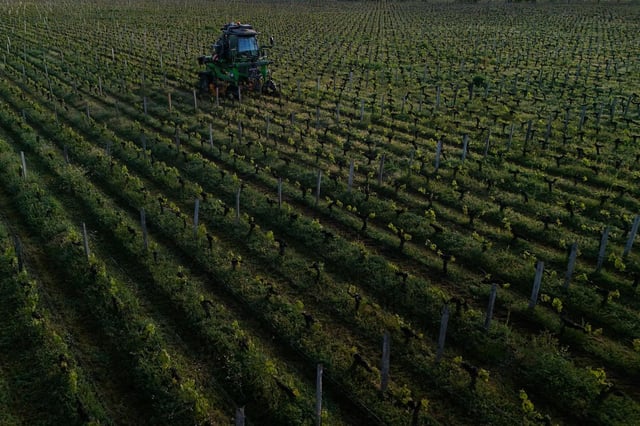Overview
- The Pesticide Action Network Europe (PAN) study found trifluoroacetic acid (TFA) levels in wines harvested after 2010 have surged, with concentrations reaching up to 320 µg/L in recent vintages.
- TFA, a persistent byproduct of PFAS chemicals, is linked to potential reproductive toxicity and cannot naturally degrade, posing long-term environmental and health risks.
- Both conventional and organic wines across 10 EU countries were contaminated; organic wines showed lower TFA levels but were not free of the chemical.
- Researchers attribute the contamination to PFAS-based pesticides and fluorinated refrigerants, with vineyards identified as hotspots due to heavy pesticide use.
- The findings come ahead of an EU member state vote on banning flutolanil, a PFAS pesticide, and amid ongoing discussions on classifying TFA as toxic to reproduction.

